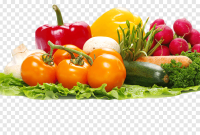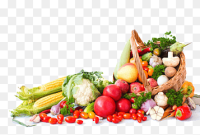The Best Vegetables: Nutritional Powerhouses for a Healthy Lifestyle
The Best Vegetables
Introduction
When it comes to nutrients, veggies are the clear winners. This essay delves into the vast and varied realm of vegetables, highlighting the dietary advantages of top-notch veggies and stressing the need of include these nutrient-dense superfoods in our regular meals.
Nutritional Value of Vegetables
Vegetables are a great source of vital nutrients that our bodies require in order to operate at their best. In addition to being aesthetically pleasing, vegetables’ vivid colors signify the presence of a variety of phytonutrients, each of which has certain health advantages.
Leafy Greens: The Verdant Marvels
Leafy greens—think spinach, kale, and Swiss chard—are superfoods with tons of nutrients and should be highlighted. These greens are a great source of iron, calcium, and vitamins A, C, and K. Given its well-known iron concentration, spinach in particular is a great option for those looking to increase their iron levels organically. Leafy greens’ antioxidants help to lessen inflammation and the chance of developing chronic illnesses.
Cruciferous Vegetables: A Crucial Component
Broccoli, cauliflower, and Brussels sprouts are examples of cruciferous vegetables. In addition to being tasty, these veggies provide several health advantages. These veggies feature substances called glucosinolates that have been connected to preventing cancer. Numerous studies have demonstrated the promise anti-cancer capabilities of sulforaphane, a byproduct of glucosinolates. Cruciferous veggies offer a wealth of vitamins, fiber, and antioxidants in addition to preventing cancer.
Including veggies in our daily meals becomes an essential and pleasurable tactic in the pursuit of good health. Vegetables, which include colorful bell peppers, leafy greens, cruciferous veggies, tomatoes, and root vegetables, are rich in nutrients and offer a wide range of alternatives to suit different tastes and dietary needs.
Colorful Bell Peppers: A Rainbow of Nutrients
Bell peppers provide taste and nutrients to food and come in a variety of hues. Vitamin C, an antioxidant that helps maintain healthy skin, strengthens the immune system, and facilitates the absorption of iron from plant-based sources, is abundant in these peppers. Variations in the nutritional profiles of bell peppers are shown by their varied hues. For example, compared to their green counterparts, red bell peppers often have greater quantities of beta-carotene and vitamin A.

Vegetables and Disease Prevention
A decreased risk of chronic illnesses has been associated with the eating of a wide array of vegetables. Vegetables are rich in antioxidants, vitamins, and minerals that support general health and provide a strong barrier against a range of illnesses. Consuming veggies on a regular basis has been linked to a lower risk of heart disease, several cancers, and age-related visual disorders.
Heart Health: Green Goodness
Fiber helps control cholesterol levels, while potassium helps keep blood pressure in a healthy range. Because of the combination of these nutrients, veggies are a heart-healthy option for anybody looking to safeguard their cardiovascular health.
Cancer Prevention: Nature’s Defense Mechanism
Preclinical research has shown that certain cruciferous vegetable constituents, such sulforaphane, have anti-cancer qualities. A rainbow of vibrant veggies’ antioxidants fight oxidative stress and lower the chance of cellular damage that can result in cancer. Vegetables by themselves do not provide protection against cancer, but include them in a balanced diet helps lower risk factors.
Eye Health: Seeing Clearly
A few veggies are really beneficial to eye health. Because of their high beta-carotene concentration, carrots are essential for proper vision maintenance. Including a range of vegetables in one’s diet highlights the significance of a comprehensive approach to nutrition by offering a spectrum of nutrients essential for eye health.
Conclusion
Including veggies in our daily meals becomes an essential and pleasurable tactic in the pursuit of good health. Vegetables, which include colorful bell peppers, leafy greens, cruciferous veggies, tomatoes, and root vegetables, are rich in nutrients and offer a wide range of alternatives to suit different tastes and dietary needs.


When it comes to nutrients, veggies are the clear winners. This essay delves into the vast and varied realm of vegetables, highlighting the dietary advantages of top-notch veggies and stressing the need of include these nutrient-dense superfoods in our regular meals.
In addition to their health benefits and function in preventing disease, veggies also offer color, flavor, and texture to food, which enhances its gourmet composition. Vegetables are quite versatile and may be eaten raw, boiled, pureed, or juiced. This allows people to get creative and try a variety of recipes.




